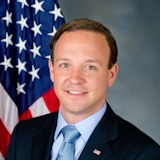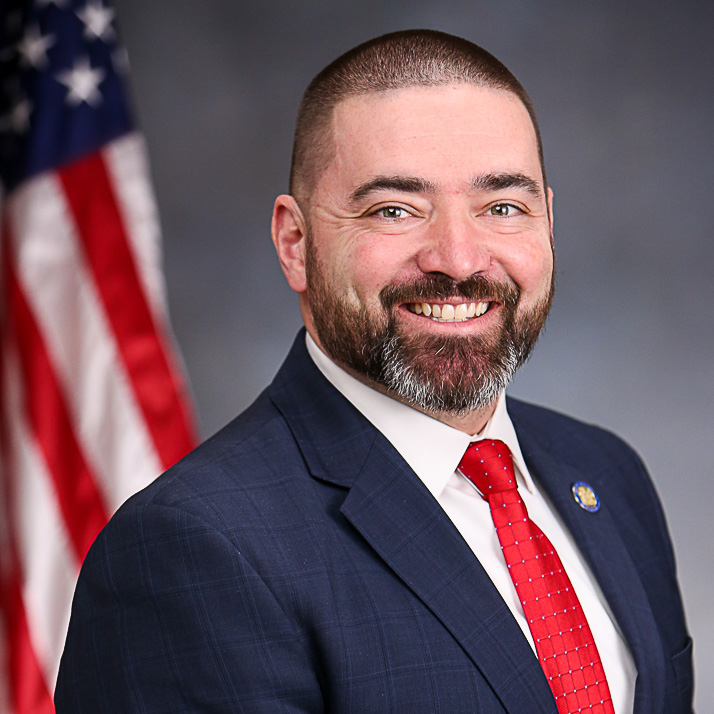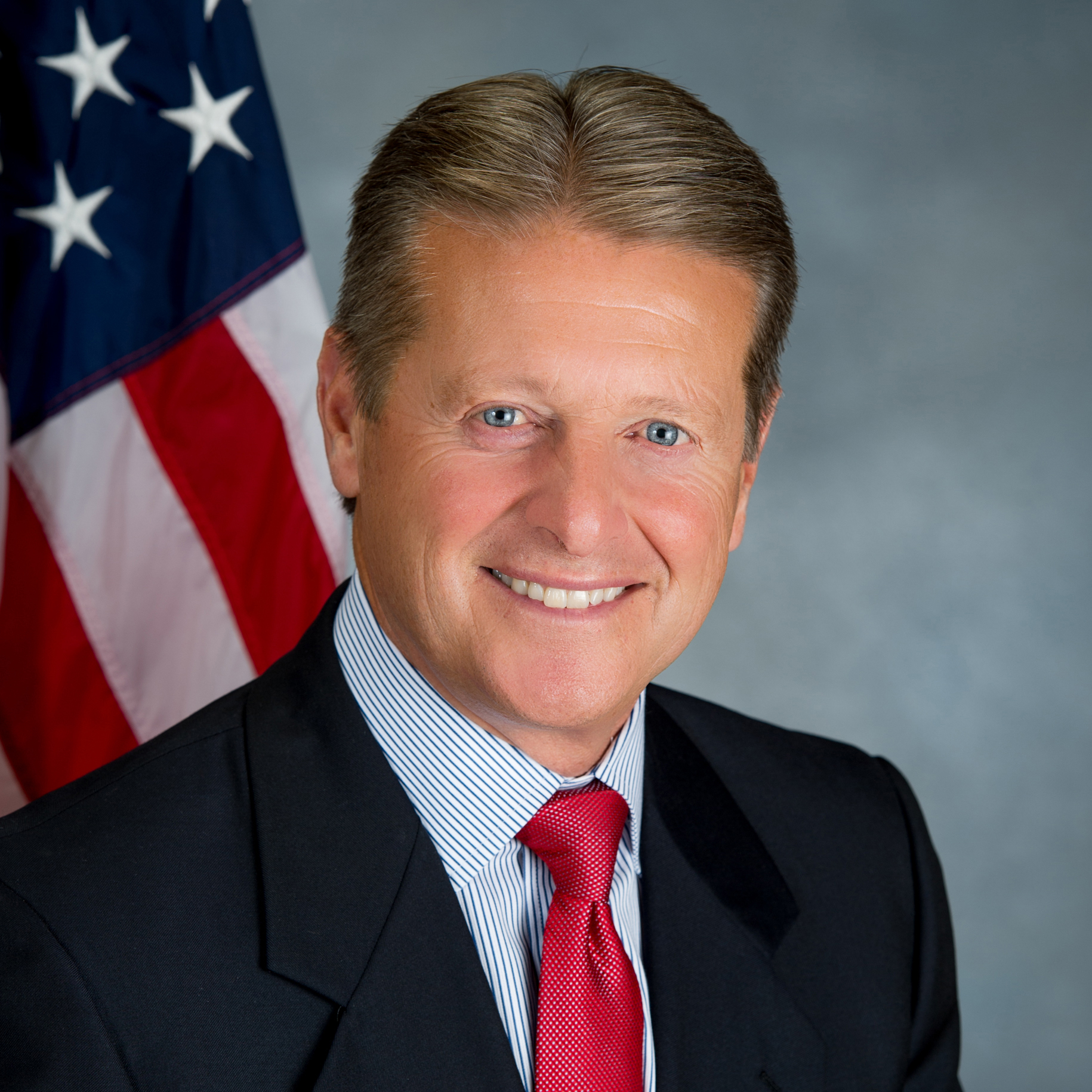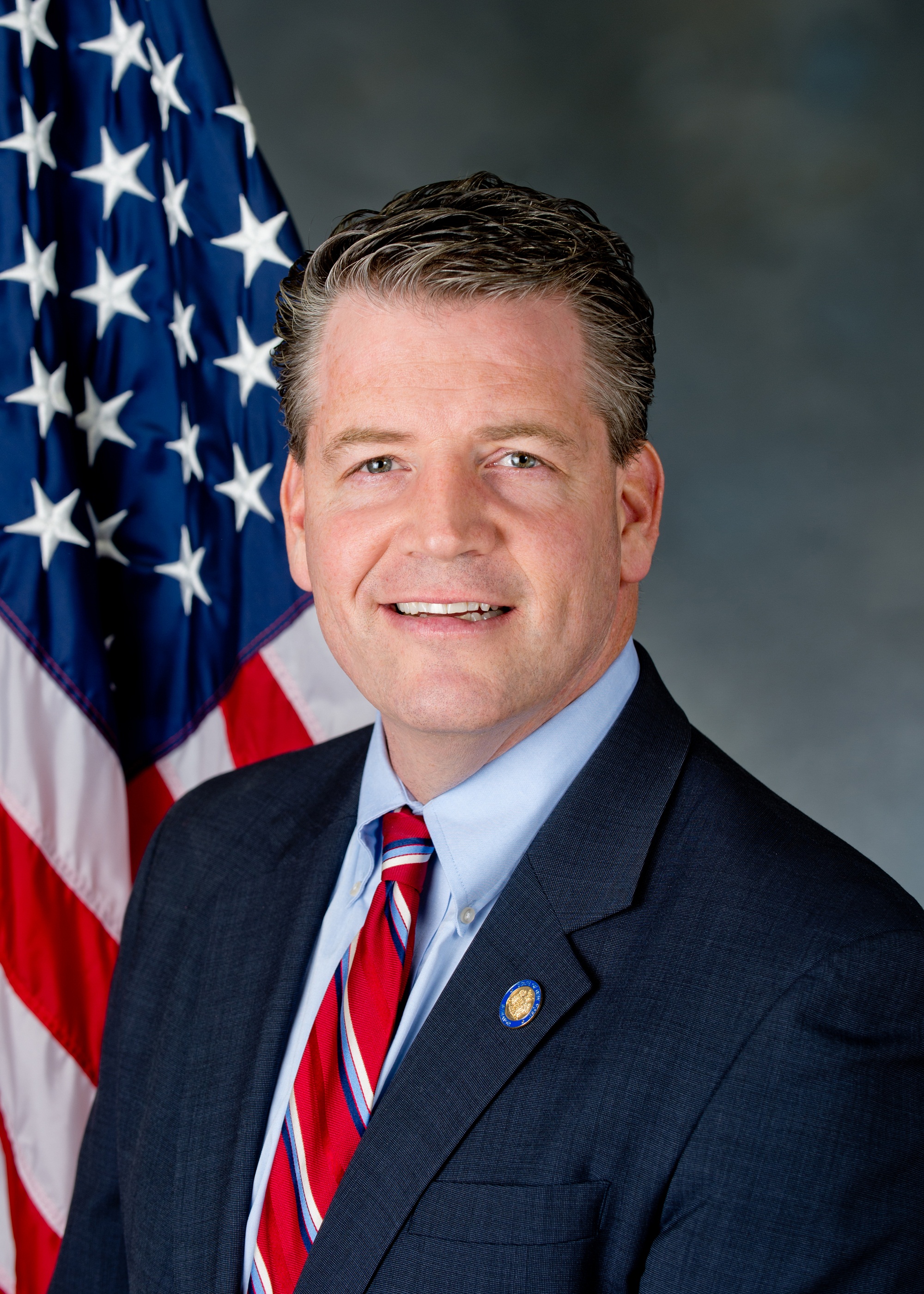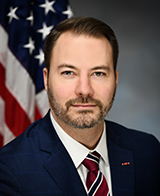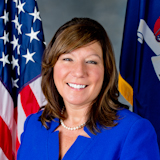S T A T E O F N E W Y O R K
________________________________________________________________________
922
2017-2018 Regular Sessions
I N S E N A T E
January 5, 2017
___________
Introduced by Sens. CROCI, AKSHAR, GALLIVAN, HANNON, LARKIN, MURPHY,
ORTT, SERINO -- read twice and ordered printed, and when printed to be
committed to the Committee on Commerce, Economic Development and Small
Business
AN ACT to amend the economic development law and the public officers
law, in relation to the establishment of regional economic development
councils; and providing for the repeal of such provisions upon expira-
tion thereof
THE PEOPLE OF THE STATE OF NEW YORK, REPRESENTED IN SENATE AND ASSEM-
BLY, DO ENACT AS FOLLOWS:
Section 1. The economic development law is amended by adding a new
section 11 to read as follows:
§ 11. REGIONAL ECONOMIC DEVELOPMENT COUNCILS. 1. THE GOVERNOR SHALL
ESTABLISH TEN REGIONAL ECONOMIC DEVELOPMENT COUNCILS, ONE FOR EACH OF
THE FOLLOWING REGIONS OF THE STATE:
(A) LONG ISLAND (WHICH CONSISTS OF SUFFOLK AND NASSAU COUNTIES);
(B) THE CITY OF NEW YORK (WHICH CONSISTS OF BRONX, NEW YORK, QUEENS,
BROOKLYN, AND RICHMOND COUNTIES);
(C) THE MID-HUDSON REGION (WHICH CONSISTS OF SULLIVAN, ULSTER, DUTCH-
ESS, ORANGE, PUTNAM, WESTCHESTER, AND ROCKLAND COUNTIES);
(D) THE SOUTHERN TIER (WHICH CONSISTS OF STEUBEN, SCHUYLER, TOMPKINS,
CHEMUNG, TIOGA, CHENANGO, BROOME, AND DELAWARE COUNTIES);
(E) THE CAPITAL REGION (WHICH CONSISTS OF WARREN, WASHINGTON, SARATO-
GA, SCHENECTADY, RENSSELAER, ALBANY, COLUMBIA, AND GREENE COUNTIES);
(F) THE MOHAWK VALLEY (WHICH CONSISTS OF ONEIDA, HERKIMER, FULTON,
MONTGOMERY, OTSEGO, AND SCHOHARIE COUNTIES);
(G) THE NORTH COUNTRY (WHICH CONSISTS OF CLINTON, FRANKLIN, ST.
LAWRENCE, JEFFERSON, LEWIS, HAMILTON, AND ESSEX COUNTIES);
(H) THE CENTRAL REGION (WHICH CONSISTS OF OSWEGO, CAYUGA, ONONDAGA,
MADISON, AND CORTLAND COUNTIES);
EXPLANATION--Matter in ITALICS (underscored) is new; matter in brackets
[ ] is old law to be omitted.
LBD02141-01-7
S. 922 2
(I) THE FINGER LAKES REGION (WHICH CONSISTS OF ORLEANS, MONROE, WAYNE,
GENESEE, WYOMING, LIVINGSTON, ONTARIO, SENECA, AND YATES COUNTIES); AND
(J) THE WESTERN REGION (WHICH CONSISTS OF NIAGARA, ERIE, CHAUTAUQUA,
CATTARAUGUS, AND ALLEGANY COUNTIES).
2. EACH REGIONAL ECONOMIC DEVELOPMENT COUNCIL SHALL DEVELOP LONG-TERM
STRATEGIC PLANS FOR ECONOMIC GROWTH WITHIN ITS REGION OF THE STATE.
3. THE MEMBERS OF EACH REGIONAL ECONOMIC DEVELOPMENT COUNCIL SHALL BE
LOCAL EXPERTS AND STAKEHOLDERS FROM BUSINESSES, ACADEMIA, MUNICIPALITIES
AND NON-GOVERNMENTAL ORGANIZATIONS WITHIN THE REGION. ALL SUCH MEMBERS
SHALL BE APPOINTED BY THE GOVERNOR, WITH THE ADVICE AND CONSENT OF THE
SENATE, AND SHALL SERVE AT THE PLEASURE OF THE GOVERNOR.
4. ALL MEMBERS OF REGIONAL ECONOMIC DEVELOPMENT COUNCILS SHALL BE
SUBJECT TO THE PROVISIONS OF SECTION SEVENTY-THREE-A OF THE PUBLIC OFFI-
CERS LAW.
§ 2. Subparagraphs (ii) and (iii) of paragraph (c) of subdivision 1 of
section 73-a of the public officers law, as amended by section 5 of part
A of chapter 399 of the laws of 2011, are amended and a new subparagraph
(iv) is added to read as follows:
(ii) officers and employees of statewide elected officials, officers
and employees of state departments, boards, bureaus, divisions, commis-
sions, councils or other state agencies, who receive annual compensation
in excess of the filing rate established by paragraph (l) of this subdi-
vision or who hold policy-making positions, as annually determined by
the appointing authority and set forth in a written instrument which
shall be filed with the joint commission on public ethics established by
section ninety-four of the executive law during the month of February,
provided, however, that the appointing authority shall amend such writ-
ten instrument after such date within thirty days after the undertaking
of policy-making responsibilities by a new employee or any other employ-
ee whose name did not appear on the most recent written instrument;
[and]
(iii) members or directors of public authorities, other than multi-
state authorities, public benefit corporations and commissions at least
one of whose members is appointed by the governor, and employees of such
authorities, corporations and commissions who receive annual compen-
sation in excess of the filing rate established by paragraph (l) of this
subdivision or who hold policy-making positions, as determined annually
by the appointing authority and set forth in a written instrument which
shall be filed with the joint commission on public ethics established by
section ninety-four of the executive law during the month of February,
provided, however, that the appointing authority shall amend such writ-
ten instrument after such date within thirty days after the undertaking
of policy-making responsibilities by a new employee or any other employ-
ee whose name did not appear on the most recent written instrument[.];
AND
(IV) MEMBERS OF REGIONAL ECONOMIC DEVELOPMENT COUNCILS.
§ 3. Section 74 of the public officers law, as amended by chapter 1012
of the laws of 1965, the opening paragraph of subdivision 1 and subdivi-
sion 4 as amended by chapter 14 of the laws of 2007, subdivisions 2 and
3 as amended by section 7 of part K of chapter 286 of the laws of 2016,
is amended to read as follows:
§ 74. Code of ethics. 1. Definition. As used in this section: The term
"state agency" shall mean any state department, or division, board,
commission, or bureau of any state department or any public benefit
corporation or public authority at least one of whose members is
appointed by the governor or corporations closely affiliated with
S. 922 3
specific state agencies as defined by paragraph (d) of subdivision five
of section fifty-three-a of the state finance law or their successors.
The term "legislative employee" shall mean any officer or employee of
the legislature but it shall not include members of the legislature.
2. Rule with respect to conflicts of interest. No officer or employee
of a state agency, member of the legislature or legislative employee OR
MEMBER OF A REGIONAL ECONOMIC DEVELOPMENT COUNCIL should have any inter-
est, financial or otherwise, direct or indirect, or engage in any busi-
ness or transaction or professional activity or incur any obligation of
any nature, which is in substantial conflict with the proper discharge
of his or her duties in the public interest.
3. Standards.
a. No officer or employee of a state agency, member of the legislature
or legislative employee OR MEMBER OF A REGIONAL ECONOMIC DEVELOPMENT
COUNCIL should accept other employment which will impair his or her
independence of judgment in the exercise of his or her official duties.
b. No officer or employee of a state agency, member of the legislature
or legislative employee OR MEMBER OF A REGIONAL ECONOMIC DEVELOPMENT
COUNCIL should accept employment or engage in any business or profes-
sional activity which will require him or her to disclose confidential
information which he or she has gained by reason of his or her official
position or authority.
c. No officer or employee of a state agency, member of the legislature
or legislative employee OR MEMBER OF A REGIONAL ECONOMIC DEVELOPMENT
COUNCIL should disclose confidential information acquired by him or her
in the course of his or her official duties nor use such information to
further his or her personal interests.
d. No officer or employee of a state agency, member of the legislature
or legislative employee OR MEMBER OF A REGIONAL ECONOMIC DEVELOPMENT
COUNCIL should use or attempt to use his or her official position to
secure unwarranted privileges or exemptions for himself or herself or
others, including but not limited to, the misappropriation to himself,
herself or to others of the property, services or other resources of the
state for private business or other compensated non-governmental
purposes.
e. No officer or employee of a state agency, member of the legislature
or legislative employee OR MEMBER OF A REGIONAL ECONOMIC DEVELOPMENT
COUNCIL should engage in any transaction as representative or agent of
the state with any business entity in which he or she has a direct or
indirect financial interest that might reasonably tend to conflict with
the proper discharge of his or her official duties.
f. An officer or employee of a state agency, member of the legislature
or legislative employee OR MEMBER OF A REGIONAL ECONOMIC DEVELOPMENT
COUNCIL should not by his or her conduct give reasonable basis for the
impression that any person can improperly influence him or her or unduly
enjoy his or her favor in the performance of his or her official duties,
or that he or she is affected by the kinship, rank, position or influ-
ence of any party or person.
g. An officer or employee of a state agency OR MEMBER OF A REGIONAL
ECONOMIC DEVELOPMENT COUNCIL should abstain from making personnel
investments in enterprises which he or she has reason to believe may be
directly involved in decisions to be made by him or her or which will
otherwise create substantial conflict between his or her duty in the
public interest and his or her private interest.
h. An officer or employee of a state agency, member of the legislature
or legislative employee OR MEMBER OF A REGIONAL ECONOMIC DEVELOPMENT
S. 922 4
COUNCIL should endeavor to pursue a course of conduct which will not
raise suspicion among the public that he or she is likely to be engaged
in acts that are in violation of his or her trust.
i. No officer or employee of a state agency employed on a full-time
basis nor any firm or association of which such an officer or employee
is a member nor corporation a substantial portion of the stock of which
is owned or controlled directly or indirectly by such officer or employ-
ee OR MEMBER OF A REGIONAL ECONOMIC DEVELOPMENT COUNCIL, should sell
goods or services to any person, firm, corporation or association which
is licensed or whose rates are fixed by the state agency in which such
officer or employee serves or is employed.
4. Violations. In addition to any penalty contained in any other
provision of law any such officer, member or employee OR MEMBER OF A
REGIONAL ECONOMIC DEVELOPMENT COUNCIL who shall knowingly and inten-
tionally violate any of the provisions of this section may be fined,
suspended or removed from office or employment in the manner provided by
law. Any such individual who knowingly and intentionally violates the
provisions of paragraph b, c, d or i of subdivision three of this
section shall be subject to a civil penalty in an amount not to exceed
ten thousand dollars and the value of any gift, compensation or benefit
received as a result of such violation. Any such individual who knowing-
ly and intentionally violates the provisions of paragraph a, e or g of
subdivision three of this section shall be subject to a civil penalty in
an amount not to exceed the value of any gift, compensation or benefit
received as a result of such violation.
§ 4. This act shall take effect immediately and shall expire and be
deemed repealed two years after such date.
